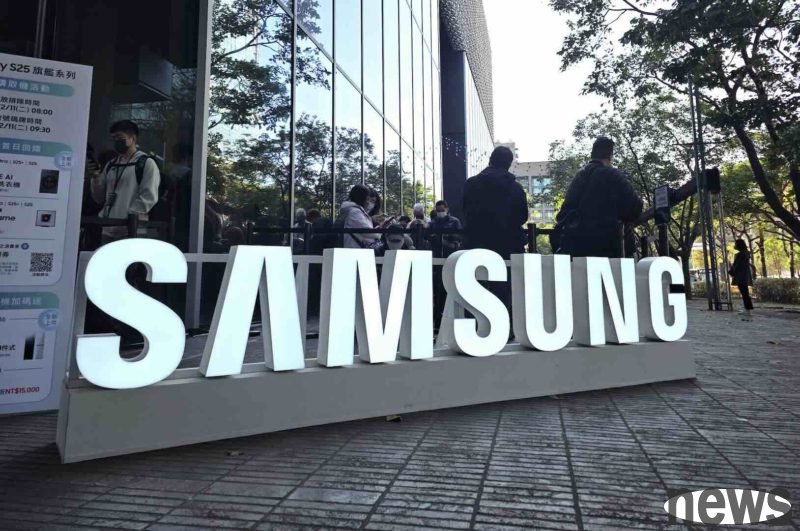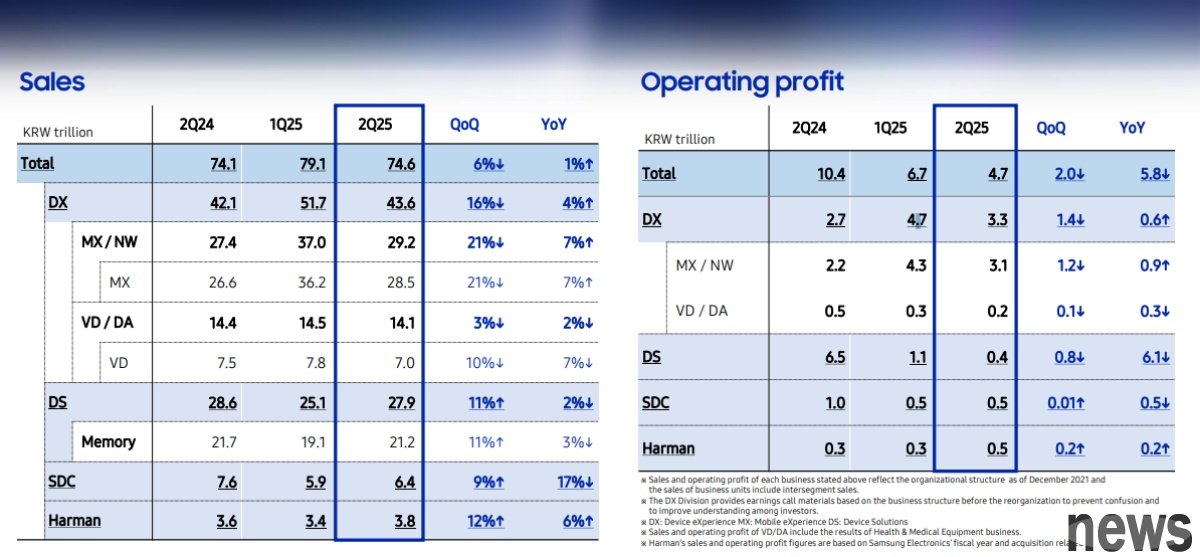
Samsung announced its second quarter financial report for 2025, and its semiconductor department performed lower than market expectations, indicating that it is still facing challenges in the AI memory and crystalline foundry fields.
The second quarter saw a 74.6 trillion KWW (about NT$164.3 billion), an increase of 0.7% year-on-year; the overall business interest was 4.7 trillion KWW (about NT$101.6 billion), a decrease of 55.2%, a new low in the past six quarters.

(Source: Samsung)
Semiconductor and Device Solutions (DS) department's second quarter business interests were only 40 billion KW (about NT$8.648 billion). The company pointed out that the U.S. chip export restrictions on China and the delay in AI chip delivery are the main drag factors. In the second half of the year, Samsung planned to start the GAA 2 nanometer process movement SoC mass production and improve production utilization and profitability through cooperation with major customers.
HBM business is the focus of Samsung's focus. Samsung's 12-layer HBM3E chips are understood and have not yet obtained NVIDIA (Nvidia) verification and cannot enter the mass production. In contrast, SK Hynix has been mass-produced, Micron has also accelerated its market share, and Samsung is competing for pressure.
Samsung submitted an announcement to the Korean executive officer on July 28 that this is Samsung and Tesla, with a total contract amount of approximately 22.8 trillion KW (about NT$493 billion). The contract period ends on December 31, 2033, significantly injecting Samsung crystal round OEM to attract market attention. Will produce AI6 self-driving chips at Texas Taylor Factory. If implemented smoothly, it will help improve the utilization rate of OEM production capacity and expand high-level American customers
However, after US President Trump announced that he would charge 15% tax on goods in South Korea, Samsung added that although global economy is still affected by trade environment and territorial political risks, some inconclusiveness has been resolved after the two sides of the United States and South Korea have ended. Financial President Park Soo-cheol said the company is paying attention to the follow-up discussions of the two-sided government on the agreement details and will develop a corresponding strategy.
Samsung Electronics Announces Second Quarter 2025 Results